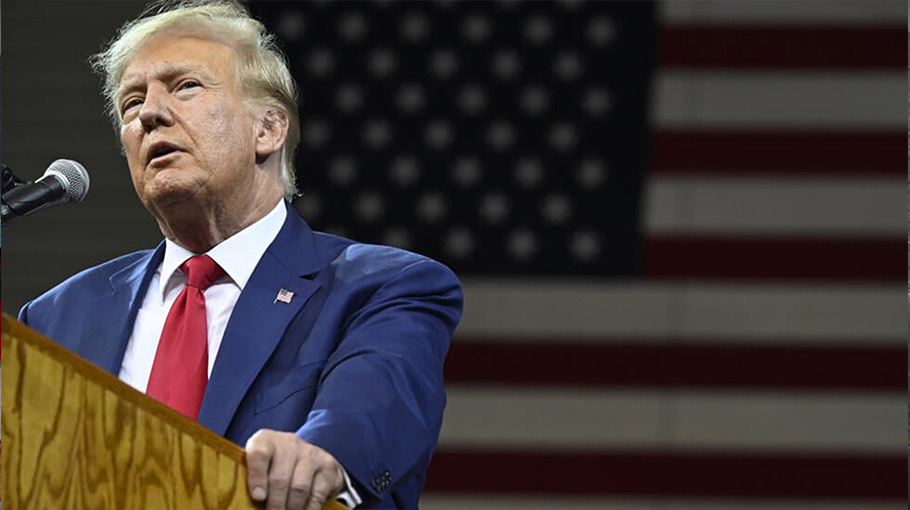Trump, in campaign mode, attempts to back off abortion

Donald Trump never misses a chance to remind voters that he was the one to appoint three justices to the US Supreme Court who voted to ditch the federal right to an abortion.
But ask the 77-year-old what he thinks personally about abortion, and his position starts to shift, the self-declared "most pro-life president in American history" well aware of what a hardline stance might cost him at the polls.
Trump was evasive when asked repeatedly this month about introducing nationwide bans or limits on abortion -- as some of his Republican challengers have proposed.
"It could be state or it could be federal, I don't frankly care," the former president and current Republican front-runner said.
A few days later, he firmed up his position, saying he believed in exceptions for abortion bans including in cases of rape, incest or when the mother's life was in danger.
After all, he said, "without exceptions, it is very difficult to win elections." The overturning of Roe v. Wade in June 2022 was the culmination of decades of Republican strategy, the gutting of federal abortion rights also kicked off a national backlash -- even among conservative voters who still wish for some access to abortion.
Two months after the Supreme Court decision, voters in Republican-dominated Kansas rejected a referendum that would have paved the way to ban the procedure in the state.
Republicans have seen further electoral disappointments in New York, Wisconsin and Ohio.
And while Republicans won the House of Representatives in the 2022 midterms, their slim victory was blunted in part by women and young voters mobilized to protect abortion.
"I think Trump understands that the (Supreme Court) decision is not popular, nor is the mainstream Republican position on abortion," political scientist Kyle Kondik told AFP. "So Trump is looking ahead to the general election and trying to give himself some room to maneuver on the issue... But it's not going to be hard for Democrats to tie him to the unpopular (court) decision."
It wouldn't be the first time Trump held -- or at least professed -- a softer opinion on abortion.
In a 1999 interview, the real-estate magnate declared "I'm very pro-choice." But he now needs to win over the country's evangelical electorate, who delivered him to office in 2016 and remain a key part of his base, according to public opinion polling.
While the end of Roe means that abortion regulation has returned to the state-level, most of Trump's Republican opponents have been pushing for federal restrictions.
Florida Governor Ron DeSantis, the number two in the Republican race, banned abortions after six weeks in his southern state -- before most women know they're pregnant.
Trump called the Florida ban a "terrible mistake."
"I reject this idea that pro-lifers are to blame for midterm defeats," DeSantis declared at Wednesday's Republican debate.
Instead, he argued that Trump -- who skipped the shouting match in light of his commanding lead in the polls -- "should be here explaining his comments, to try to say that pro-life protections are somehow a terrible thing." The Democratic Party has not only enjoyed the Republican infighting, but also made abortion a central part of its campaigns.
In conservative Kentucky, where the governorship is up for grabs this year, a striking ad puts pressure on Trump. In it, a woman raped by her stepfather as a child blasts the state's abortion restrictions, saying that telling "a 12-year-old girl she must have the baby of her stepfather, who raped her, is unthinkable."
Kevin Munoz, a spokesman for Joe Biden's reelection campaign, is betting the Supreme Court decision will still be fresh in voters' minds.
"Since Roe was overturned, Americans have rejected MAGA Republicans' anti-abortion extremism," he said in a statement. "And they'll do it again in 2024."




